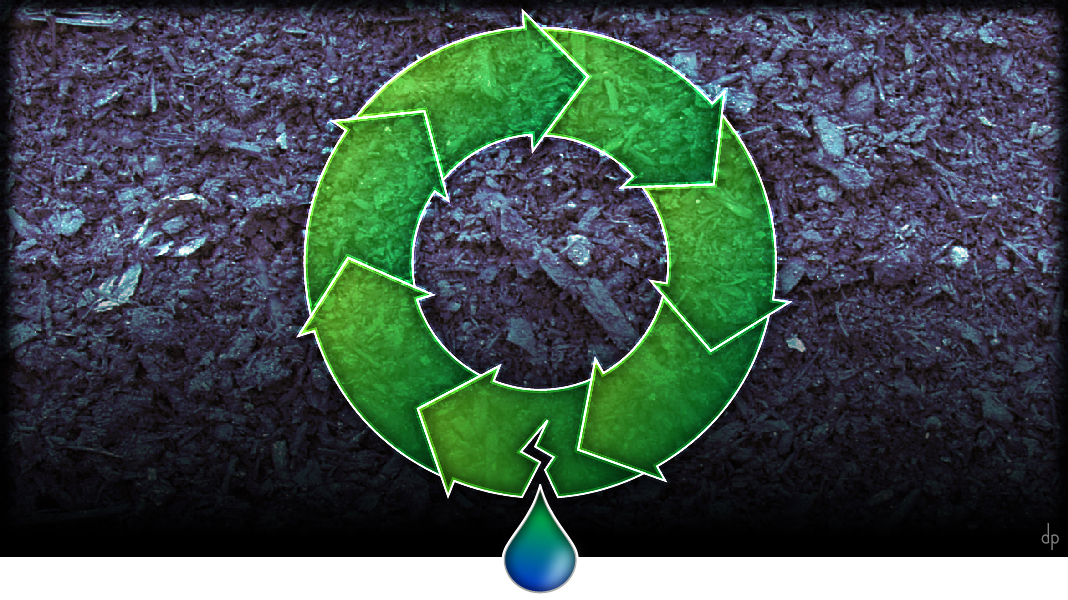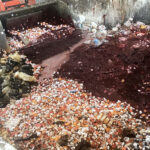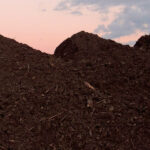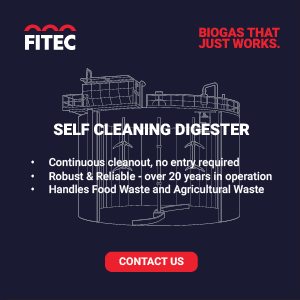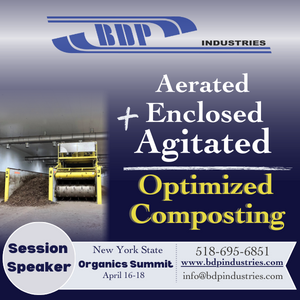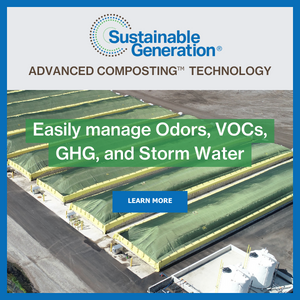Top: Illustration by Doug Pinkerton
Nora Goldstein
We had an article in last week’s BioCycle CONNECT on the symbiotic relationship of a solid waste authority and a municipal wastewater treatment plant. The waste authority installed food waste depackaging equipment to process commercial and institutional food waste, much of it in containers and boxes. The output is being trucked to the adjacent treatment plant where the slurry is codigested with municipal biosolids. Biogas is utilized to generate power for the wastewater facility.
A nice closed loop, right? Almost, excepting that the biosolids from the treatment plant are disposed in the solid waste authority’s landfill. Previously they were being incinerated. I went for a walk shortly after the article was posted on BioCycle.net. It hit me that I have let myself fall off the soapbox where I preached that food waste codigested at wastewater treatment plants isn’t truly recycling if the biosolids are not beneficially used. It is awesome to divert the food waste, and more awesome to recover the heat and electricity. But disposing of biosolids — a critically valuable resource — is a huge leak in what is otherwise a closed loop. Think healthy soil, clean water.
The phrase, Leaks in the Loop, occurred to me a few hours after my walk. Organics recycling is the essence of a closed loop system. One of the simplest examples is home composting, where food scraps are composted, the compost is used in the garden, and the garden produces food that in turn yields food scraps that go into the composter. Agricultural composting is another fairly tight closed loop. So is community composting at community gardens. In each of those examples, the inputs tend to be only organics, e.g., food scraps, manures, yard trimmings, etc. Participants in the loop are cognizant (and typically vigilant) about impurities, and have tight control over what gets in and what stays out.
Scaling The Loop
Becoming vulnerable to leaks typically starts as the loop is scaled, and tight control is compromised. The more households that join food scrap collection programs, the more potential for “oops” increases (salad bags, bottle caps, utensils, candy wrappers) — despite colorful refrigerator magnets and curbside container lids explicitly stating what is accepted. During an interview with a compost manufacturer who collects food waste from larger scale commercial generators, he noted that they get the occasional cooking oil jug that somehow makes its way into the grinder without being noticed. This stuff happens.
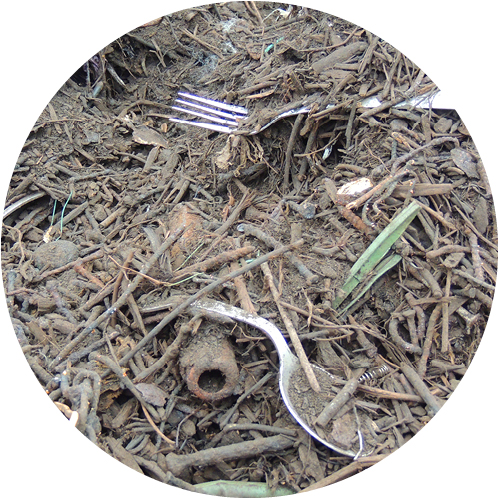 Compost math is such that increased contamination equals increased costs, usually in both labor and equipment. It also jeopardizes compost sales. Much of the contamination ends up in screened overs. When clean, overs can be recycled back into the composting process, used as a biofilter cap on compost piles, and/or marketed as mulch. When contaminated, they typically end up the waste stream to be disposed.
Compost math is such that increased contamination equals increased costs, usually in both labor and equipment. It also jeopardizes compost sales. Much of the contamination ends up in screened overs. When clean, overs can be recycled back into the composting process, used as a biofilter cap on compost piles, and/or marketed as mulch. When contaminated, they typically end up the waste stream to be disposed.
In addition to vulnerability to physical contaminants, compost manufacturers, wastewater treatment plants and anaerobic digestion facilities have to contend with pollutants that show up at their facilities by no fault of their own. The contaminants du jour (and actually for a number of years now) are PFAS, or poly- and perfluorinated alkyls substances — including PFOA and PFOS. PFAS are a family of chemicals commonly used since the 1950s in carpets, furniture and other fabrics, cooking tools, outdoor clothing, paper products, firefighting foams, and numerous industrial applications.
PFAS are messing up a lot of closed loops, especially as regulators attempt to limit human and environmental exposure to them — including from recycled organics. These regulators opt for low limits that can only be met with significant capital investments in removal systems. The burden of this leak in the loop is borne downstream by composters and organics recyclers. Upstream, the manufacturers of PFAS compounds and products containing them merrily go on using the latest iteration with truly no consequences that they can’t manage given their vast financial resources.
Plugging The Leaks
So how do we plug these leaks in the loop? Is it tough extended producer responsibility requirements on manufacturers of forever chemicals like PFAS? Is it further investment in public outreach, education and training to keep contaminants out of source separated organics? Is it laws to limit single-use packaging?
The bottom line is we really, really need recycled organics in soils. We need every ounce — the biosolids, screened overs, compost and digestate — with no scrap left behind. I’ve had the benefit of over 40 years of observation on what works and doesn’t work to achieve this goal. Here are a few takeaways:
- Mechanical separation can only get you so far in removing contamination once it enters the organics recycling system.
- Outreach and education, training, incentives and other tools to change human behavior are critical to achieving clean streams. But until there are fewer decisions that households have to make about what goes where in their source separation practices, this is a huge uphill climb.
- Mandates and laws to eliminate or reduce disposal of organics have to start with the end in mind, i.e., maximizing utilization of the recycled organics. Focusing on end use and then working backwards to design diversion programs that optimize clean streams must be the mantra. How to make that cost-effective will be this decade’s challenge.
Ultimately, to plug the leaks in the loop, we have to mimic the control achieved when the loop is relatively tight (e.g.. home composting). Putting the focus on high quality outputs derived from high quality inputs seems like the winning proposition. It will take a lot of players — from corporate suites to our home kitchens — to pull the oars in the same direction.


